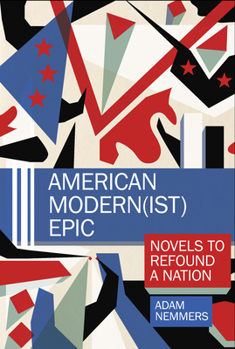American Modern(ist) Epic: Novels to Refound a Nation
American Modern(ist) Epic argues that during the 1920s and '30s a cadre of minority novelists revitalized the classic epic form in an effort to recast the United States according to modern, diverse, and pluralistic grounds. Rather than adhere to the reification of static culture (as did ancient verse epic), in their prose epics Gertrude Stein and John Dos Passos utilized recursion, bricolage, and polyphony to represent the multifarious immediacy and movement of the modern world. Meanwhile, H. T. Tsiang and Richard Wright created absurd and insipid anti-heroes for their epics, contesting the hegemony of Anglo and capitalist dominance in the United States. In all, I posit, these modern(ist) epic novels undermined and revised the foundational ideology of the United States, contesting notions of individualism, progress, and racial hegemony while modernizing the epic form in an effort to refound the nation. The marriage of this classical form to modernist principles produced transcendent literature and offered a strenuous challenge to the interwar status quo, yet ultimately proved a failure: longstanding American ideology was simply too fixed and widespread to be entirely dislodged.
Format:Hardcover
Language:English
ISBN:1949979660
ISBN13:9781949979664
Release Date:October 2021
Publisher:Clemson University Press W/ Lup
Length:288 Pages
Weight:1.30 lbs.
Dimensions:1.0" x 6.3" x 9.7"
Customer Reviews
0 rating





